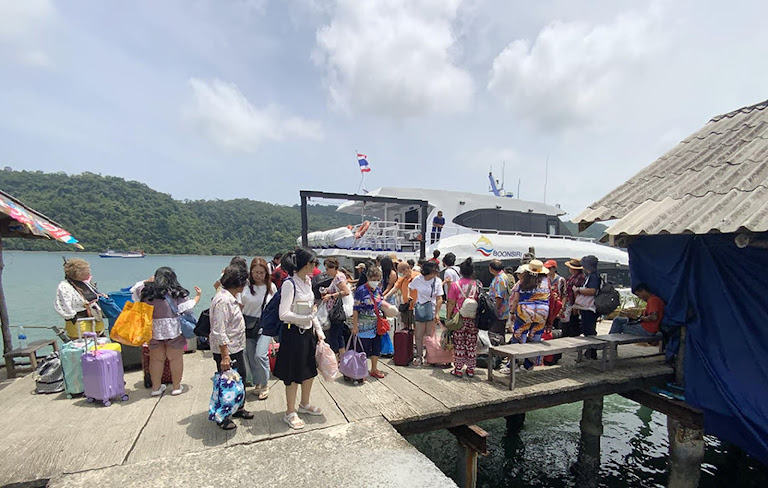Thailand’s Trat: Paradise Lost? Tourism Boom Risks Island’s Future
Island idyll threatened: Can Trat’s tourism boom balance economic gains with ecological and social costs?

Imagine a world where “paradise” is less a state of being and more a carefully engineered asset, meticulously calibrated to maximize yield. That’s Trat province in Thailand, 2025. Koh Chang, Koh Kood, and Koh Mak are not simply basking in the sun; they’re components in a meticulously planned tourism “renaissance,” chasing a 20 billion baht bonanza fueled by tourists fleeing the overcrowded and, in some minds, increasingly precarious Andaman coast. But this isn’t just a story about beaches and balance sheets; it’s about the fundamental fragility of economic models built on transient desires and the illusion that “nature” can be endlessly commodified without consequence.
As “Khaosod" reports, Trat’s aggressive international marketing — think 'Amazing Thailand Responsible Fam Trip 2025” targeting European tour operators — is yielding results. Hotel occupancy rates are soaring, revenues are up, and the Tourism Authority of Thailand (TAT) is declaring victory. But what if the TAT’s KPIs are fundamentally misaligned with long-term flourishing? What ecological debts are being accrued in the pursuit of these gains? And what happens when Trat inevitably becomes the “next Phuket,” its tranquil charm bulldozed to make way for a homogeneous landscape of souvenir shops and package tours?
The underlying anxieties driving this tourist migration — the lingering psychological shadow of the 2004 tsunami, the claustrophobia of overdeveloped Southeast Asian destinations — expose a crucial paradox. Tourists seek authenticity, immersion in nature, and, above all, a sense of safety. Yet, the very engine of mass tourism often destroys the authenticity it seeks, degrades the ecosystems it relies on, and, as this article suggests, creates acute vulnerabilities to geopolitical instability.
Consider the impact of heightened Thai-Cambodian border tensions on Trat’s nascent tourism economy. According to Atthaphon Klinthap of Boonsiri High-Speed Ferries, a protracted conflict could cost Thailand 100–200 tourists daily. This isn’t merely about lost revenue; it’s a sharp reminder that tourism, despite its veneer of escapism, is inextricably bound to the complexities and uncertainties of international relations. These displaced tourists could easily reallocate their vacation budgets to Vietnam, Singapore, or Indonesia, exposing the precariousness of Trat’s single-industry economy.
The TAT, in its quest for a 5% increase over 2024’s 18.256 billion baht, is engaged in a high-stakes game with unpredictable outcomes. It can siphon tourists from rival destinations, but it cannot immunize itself from the capricious forces that govern global travel patterns. As tourism scholar Erik Cohen observed, the search for “novelty” drives tourists to constantly seek out new destinations, leaving a trail of exploited and eventually discarded locations in its wake. This cycle of boom and bust is not a bug in the system, but a feature.
The “Amazing Thailand” campaign, launched in 1998 in the wake of the Asian financial crisis, perfectly illustrates this dynamic. While it successfully revitalized the Thai economy by attracting millions of visitors, it also fostered an over-reliance on tourism, often at the expense of other vital sectors. Trat, in this context, is a microcosm of a global phenomenon: a region blessed with natural beauty whose future is mortgaged to the volatile whims of the international market, perpetually exposed to the disruptive forces of global instability.
Trat’s story serves as a crucial cautionary narrative. It underscores the inherent unsustainability of a tourism model driven solely by economic imperatives, without profound consideration for the ecological and social integrity of the host community. The true measure of success isn’t simply hitting revenue targets, but fostering the long-term well-being of its inhabitants and safeguarding the natural wonders that attract visitors in the first place. Without that crucial equilibrium, paradise risks becoming just another paved-over parking lot, one resort at a time.









